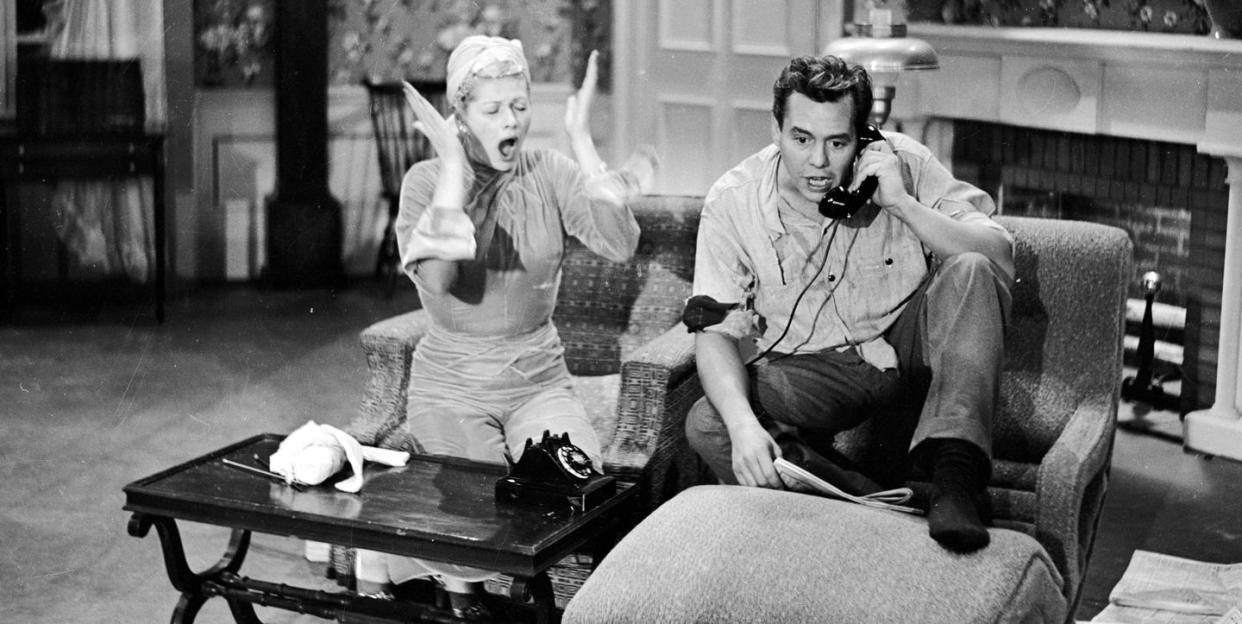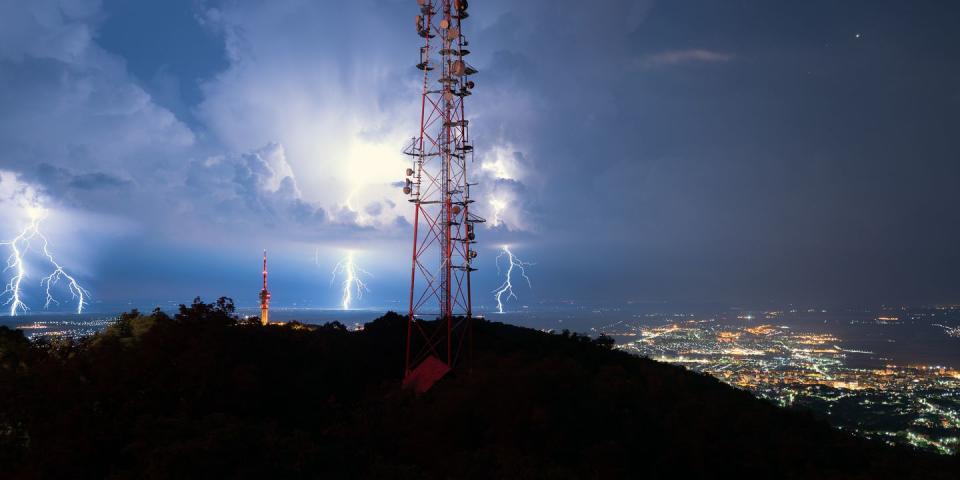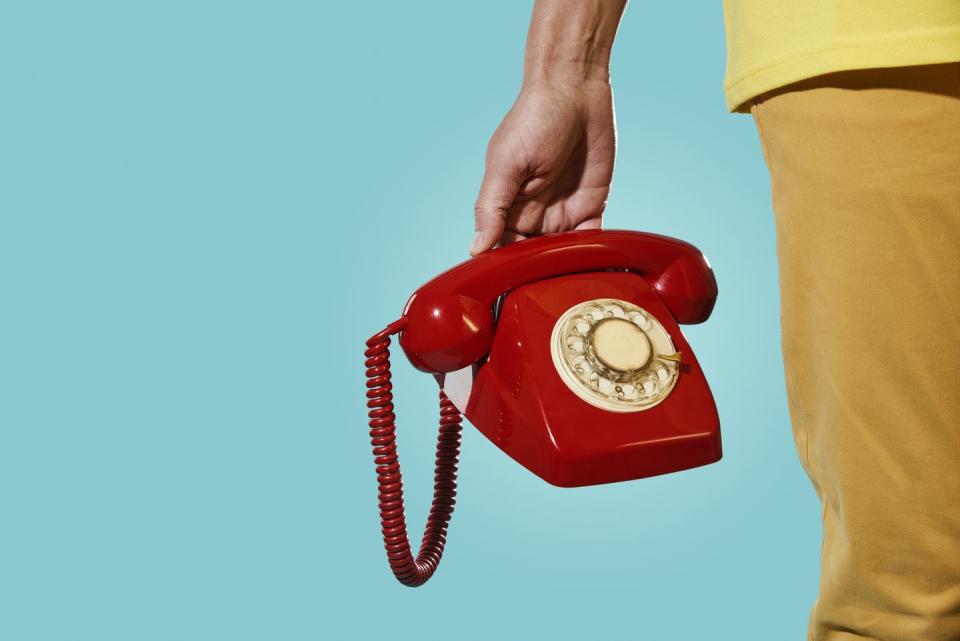Do I Need a Landline for Emergencies?

"Hearst Magazines and Yahoo may earn commission or revenue on some items through these links."
Much like cassette players and VCRs, landline telephones have mostly gone the way of the dinosaurs. Only about three in 10 U.S. households have landlines these days, according to the National Health Interview Survey. (Researchers have a keen interest in knowing how many people have home phones because of all of the cold call polls they conduct!)
From cost-saving measures to pesky robo calls that cause your phone to ring off the hook, there are plenty of legitimate reasons for cutting the cord on your landline and relying solely on your cell phone. But disaster experts warn that having a back-up landline to use during an emergency is a smart idea.

Here's Why You Need A Landline
Emergencies including hurricanes, wildfires, tornadoes, and even rain and snowstorms can take out cell phone towers and/or disrupt power lines, making landline phones a more reliable alternative for communicating during an emergency.
"Landlines don't rely on electricity to run, and can provide an effective, reliable source of communication during an emergency," says Patrick Hardy, president of Hytropy Disaster Management in Sacramento, California. This means that when the power's out, your landline will still be functional.
Plus, if your cell phone runs out of juice, and you can't charge it during a power outage, a landline can come in handy, says Perry Prete, a paramedic with more than four decades of experience and president of Sands Canada, which supplies first and medical devices in the U.S. and Canada. Also, you don't risk dropping a call on a land line like you do your cell phone.
In addition that, using your landline is the best option for police to trace your exact location. "When you use a cell phone, the 911 call goes to the closest cell tower, so it may not necessarily go to the 911 dispatcher of where you are located. If that happens, they have to forward the call, which can slightly delay the amount of time it takes for them to get to you," explains Ryan Kerwin, founder of Ever Vigilant Preparedness, a disaster preparedness consulting company based in Greenwich, Connecticut. "This also becomes a problem if the person in distress cannot speak."
One important thing to note, though: The Federal Trade Commission has been phasing out traditional copper landlines and many telephone companies are switching to Voice over Internet Protocol (VoIP), which experts say isn’t as reliable in a storm, since it requires electricity to be up and running.
If you have a landline or are setting one up, the Federal Emergency Management Agency recommends asking your telecom what type of service you have so you can gauge how well it will fare during an emergency. If your service is provided over broadband connections like VoIP, it won’t work during electric outages without a spare battery or backup power service you can plug it into, according to FEMA. Emergency officials recommend charging your battery before the storm, testing it, and also having a spare backup battery, too.

...And Your Landline Should Have a Cord
According to FEMA, while most traditional (non VoIP) landline telephone service should work during electric power outages, your best bet is an old-school "corded" phone. (Think: the sturdy old-style phones from the 1970s and 80s that plug into phone jacks on the wall, Prete says). Many cordless home phones rely on electric power to operate, so they'll work when cell service is out, but won't do you any good should a storm knock power out in your neighborhood. On the other hand, "Landlines have been known to work for days following power failures due to their low power consumption," Prete says. For safety's sake, Hardy also recommends having at least two jacks in your home, in case one part of your home is damaged in a storm.
Of course, having a landline can provide a backup if your cell phone is simply getting spotty service, too, and it can be a key part of the communication plan you have in place in case disaster strikes, says Kerwin. “When preparing for a possible disaster or emergency, I firmly believe in redundancy,” he says. A mantra he preaches: Two is one, but one is none—meaning you should be prepared for something to break or not work during an emergency and have a backup. In other words, he says, a "landline is a great alternative and option to a cell phone."

You'll Also Want A List of Phone Numbers
One more suggestion from our experts: Have hard copies of your closest friends and family members' phone numbers, which most of us don’t know off the top of our heads anymore. That way, you'll be able to give them a ring even if your phone dies and you can’t get to your contacts list.
You Might Also Like

